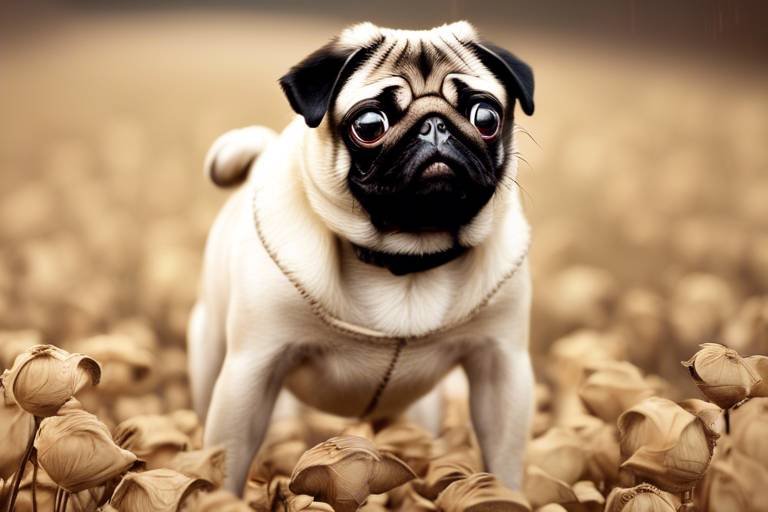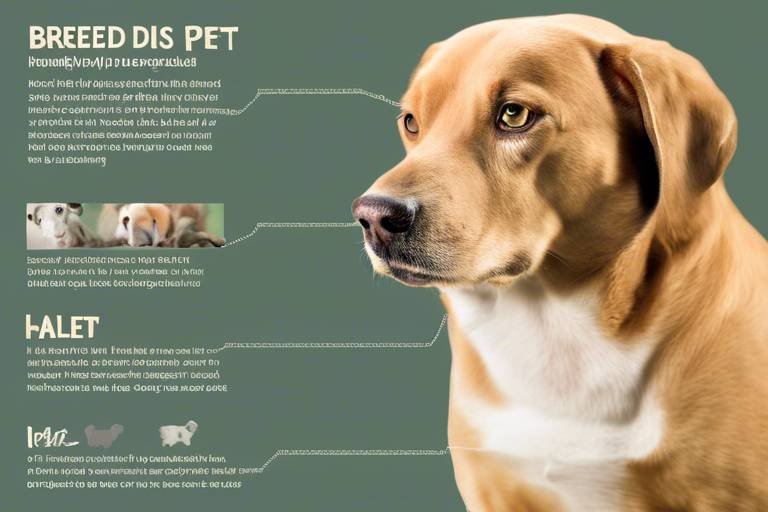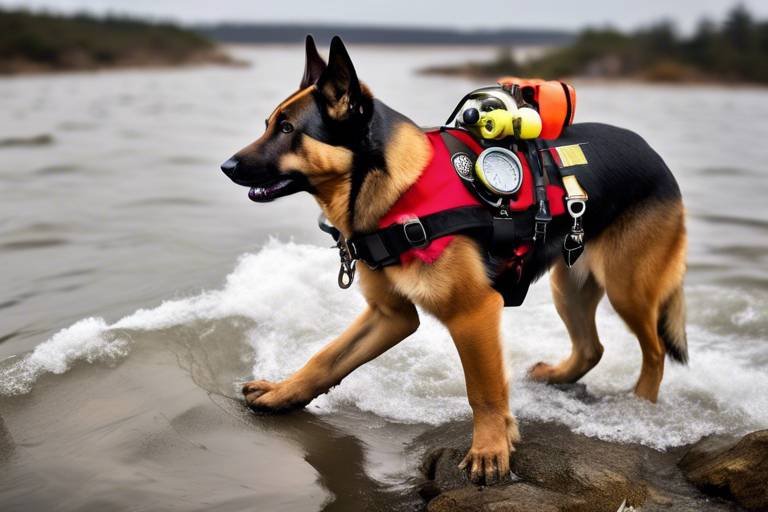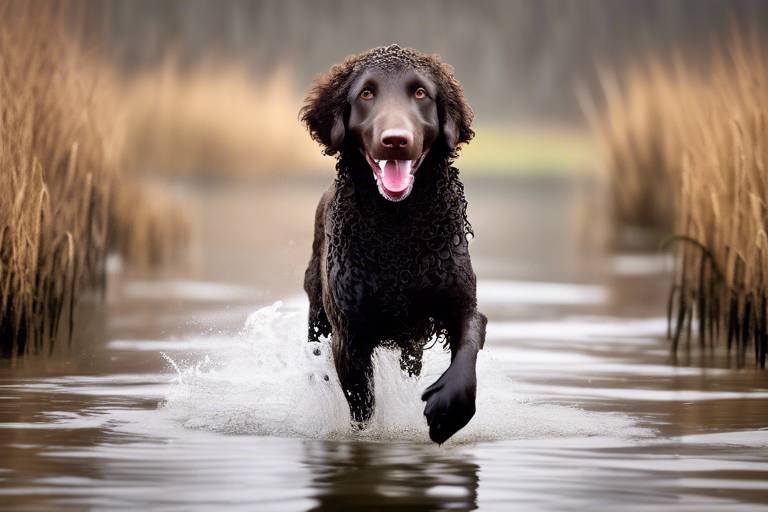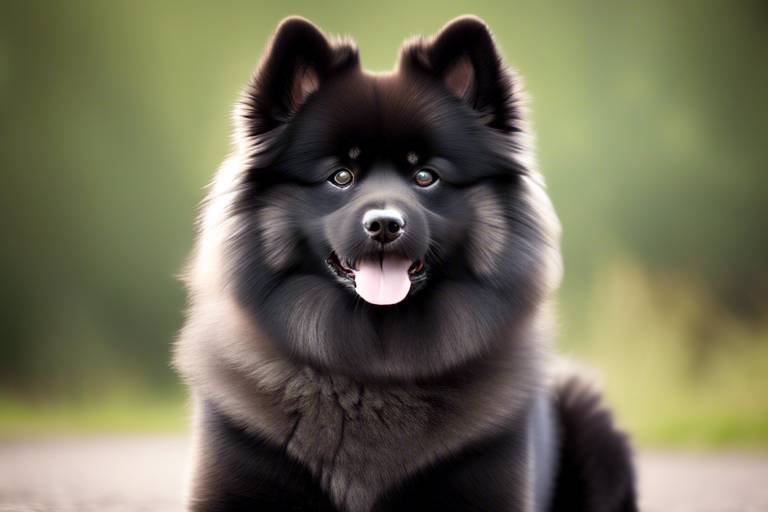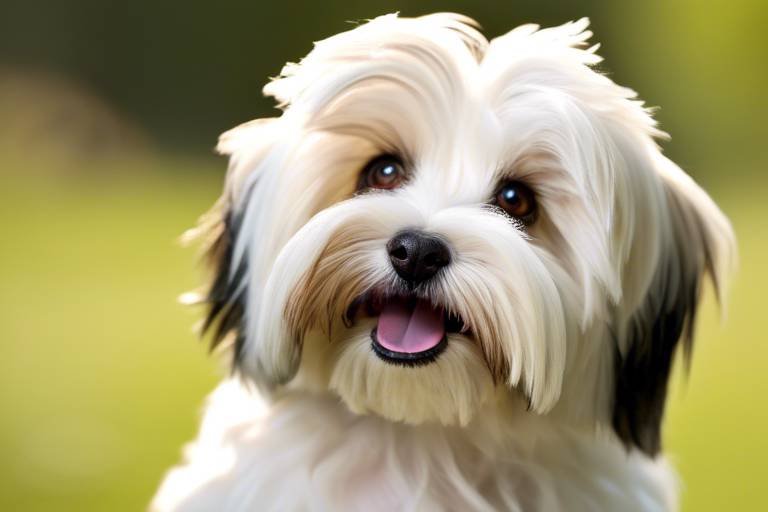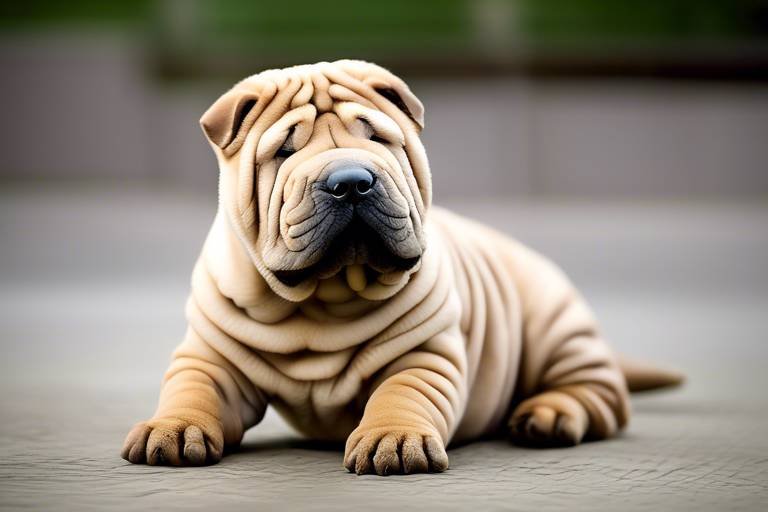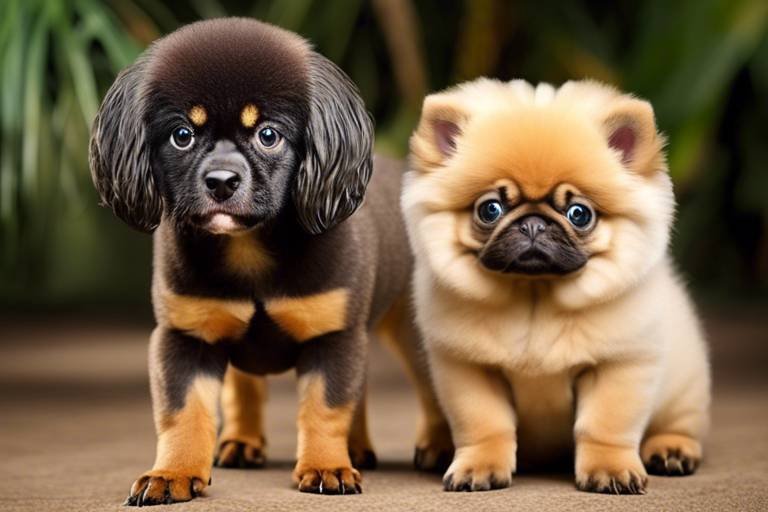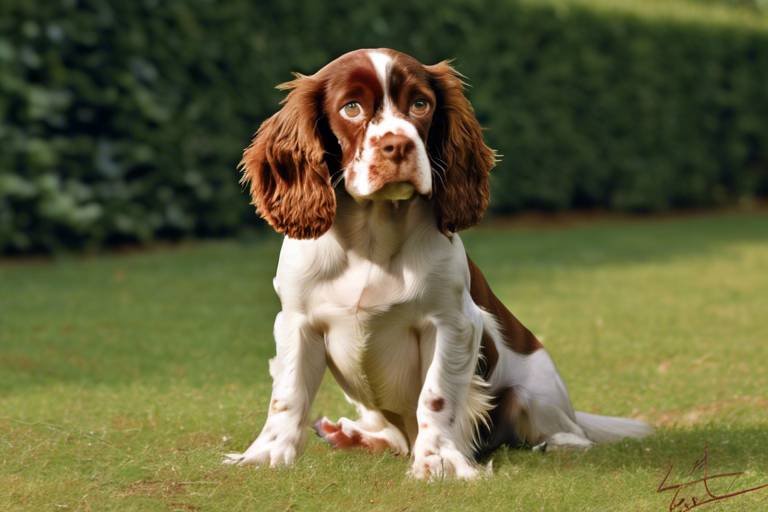The Affectionate Nature of the Bichon Frise
The Bichon Frise is more than just a fluffy ball of joy; it’s a loving companion that brings warmth and happiness into any household. Known for their cheerful demeanor and playful spirit, Bichon Frises have a knack for turning even the gloomiest of days into a delightful adventure. With their charming personalities and boundless energy, these dogs quickly become beloved members of the family. Whether you’re looking for a cuddle buddy on the couch or an enthusiastic playmate for your kids, the Bichon Frise fits the bill perfectly.
One of the most endearing qualities of the Bichon Frise is their affectionate nature. They thrive on human interaction and are known to shower their owners with love and attention. This breed is often described as social butterflies, always eager to meet new friends, whether they be humans or fellow pets. Their friendly disposition makes them excellent family pets, as they are typically gentle with children and can adapt well to various living situations, from apartments to larger homes.
But what truly sets the Bichon Frise apart is their loyalty. They form strong bonds with their families and often follow their owners from room to room, always seeking to be a part of the action. This loyalty is reciprocated with a playful attitude that keeps everyone entertained. Imagine a tiny, fluffy comedian that knows just how to make you laugh with their silly antics! Their playful nature is not just for show; it’s a reflection of their innate desire to connect with their humans.
In essence, the Bichon Frise is a bundle of joy wrapped in a soft, curly coat. Their affectionate temperament, combined with their playful personality, makes them a favorite among dog lovers. They remind us that life is better when shared with a furry friend who knows how to spread happiness and love. So, if you’re considering adding a Bichon Frise to your family, prepare yourself for a lifetime of cuddles, laughter, and unwavering companionship.
- Are Bichon Frises good with children?
Yes, Bichon Frises are known for their gentle nature and typically get along well with children, making them great family pets. - How much exercise do Bichon Frises need?
Bichon Frises require regular exercise, including daily walks and playtime, to keep them happy and healthy. - Do Bichon Frises shed?
This breed is considered hypoallergenic and does not shed much, making them suitable for allergy sufferers. - How often should I groom my Bichon Frise?
Regular grooming is essential for Bichon Frises, ideally every 4-6 weeks, to maintain their coat and prevent matting.

[Temperament and Behavior]
The Bichon Frise is often described as a little bundle of joy, and for good reason! This breed's cheerful and friendly disposition makes them a favorite among dog lovers worldwide. Imagine a dog that greets you with a wagging tail and a playful bounce every time you walk through the door—this is the essence of the Bichon Frise. Their playful nature not only brings joy to their families but also makes them great companions for children and other pets.
One of the standout traits of the Bichon Frise is their social tendencies. These dogs thrive on interaction, whether it's with their human family members or other furry friends. They have an innate ability to connect with people, often seeking out cuddles and affection. Their curiosity drives them to explore their surroundings, making them eager participants in family activities. This breed loves to be the center of attention, and they often respond with playful antics that can leave everyone in stitches!
When it comes to their behavior, Bichon Frises are generally affectionate and loyal. They form strong bonds with their families, often following their owners from room to room. This loyalty can sometimes lead to separation anxiety if they are left alone for long periods. Therefore, it’s essential to provide them with the companionship they crave. Their friendly demeanor extends to other pets as well, making them excellent candidates for multi-pet households.
However, like any breed, the Bichon Frise can exhibit some behavioral quirks. For instance, they can be prone to barking, especially if they feel excited or want to alert their owners to something unusual. It’s important to set boundaries and teach them when it's appropriate to bark and when to be quiet. With consistent training and socialization, these little furballs can learn to manage their vocalizations effectively.
In summary, the Bichon Frise is a delightful breed that embodies joy and companionship. Their playful personality, combined with their affectionate nature, makes them an ideal family pet. Whether they're snuggling on the couch or frolicking in the yard, Bichon Frises are sure to bring smiles to everyone around them.

[Training and Socialization]
The Bichon Frise is not just a pretty face; this breed is also known for its remarkable intelligence and eagerness to please, making training a delightful experience. Have you ever met a dog that seems to wear a perpetual smile? That's the Bichon Frise for you! Their playful and affectionate nature means they are particularly receptive to training, which is essential for their development and happiness. Early training and socialization are crucial as they help in shaping a well-adjusted dog that can confidently navigate the world around them.
When you start training your Bichon Frise, it’s important to keep sessions short but engaging. These little furballs have a short attention span, so mixing fun with learning is the key. Think of it like teaching a child: if it’s not enjoyable, they’ll quickly lose interest. Incorporate games and positive interactions to keep your Bichon motivated. You might even find that they excel at tricks and commands that require a bit of creativity. For instance, why not teach them to play hide and seek? It’s a fantastic way to bond while reinforcing their learning!
Teaching basic commands such as "sit," "stay," "come," and "down" is essential for any dog, and the Bichon Frise is no exception. These commands not only promote good behavior but also ensure your dog’s safety. When you teach these commands, it’s helpful to ensure that your training environment is calm and free from distractions. Consider using a quiet room or an enclosed yard where your Bichon can focus solely on you and the task at hand.
To make the learning process smoother, use treats as rewards. This method not only reinforces the desired behavior but also creates a positive association with training. Remember, patience is vital! If your Bichon struggles with a command, don’t get frustrated. Instead, break it down into smaller steps. For example, if you’re teaching “stay,” start with just a second and gradually increase the time as they get the hang of it.
Speaking of rewards, let’s dive deeper into the concept of positive reinforcement. This technique is a game changer when it comes to training your Bichon Frise. It’s all about rewarding good behavior rather than punishing bad behavior. This approach not only builds trust but also fosters a loving relationship between you and your dog. Imagine your Bichon Frise’s wagging tail when they realize they’ve done something right; it’s a heartwarming sight!
Some effective positive reinforcement techniques include:
- Verbal Praise: Always accompany treats with enthusiastic praise. A cheerful “Good boy!” or “Well done!” can work wonders.
- Clicker Training: Using a clicker can help mark the exact moment your dog performs the desired behavior, making it easier for them to understand what you want.
- Playtime: Sometimes, a game of fetch or tug-of-war can be the best reward for your Bichon. It’s not just about treats; it’s about spending quality time together.
Now, let’s talk about socialization, which is just as important as training. A well-socialized Bichon Frise is a happy Bichon Frise! Start socializing your pup as early as possible by introducing them to various environments, people, and other pets. Take them to parks, pet-friendly stores, and even your friend’s house. The more experiences they have, the more confident they will become.
Remember, exposure should be gradual and positive. If your Bichon seems nervous, take a step back and allow them to acclimatize at their own pace. You can also arrange playdates with other friendly dogs. This not only helps them learn proper doggie etiquette but also provides an outlet for their playful energy. Just like humans, dogs thrive on companionship and interaction!
Despite their affectionate nature, Bichon Frises can sometimes exhibit behavioral issues if not properly trained and socialized. Some common problems include separation anxiety, excessive barking, and stubbornness. However, with early training and consistent positive reinforcement, you can manage these behaviors effectively. Remember, it’s all about understanding your furry friend and providing them with the love and guidance they need to flourish.
In conclusion, training and socialization are vital components in raising a happy and well-adjusted Bichon Frise. By employing positive reinforcement techniques and ensuring they are well-socialized, you’ll not only enhance their quality of life but also strengthen the bond between you and your beloved pet.
Q: How early should I start training my Bichon Frise?
A: It’s best to start training as soon as you bring your Bichon home, ideally around 8 weeks old. Early training sets the foundation for good behavior.
Q: Are Bichon Frises easy to train?
A: Yes! Bichon Frises are known for their intelligence and eagerness to please, making them relatively easy to train, especially with positive reinforcement methods.
Q: How can I socialize my Bichon Frise?
A: Socialize your Bichon by exposing them to different people, pets, and environments gradually. Positive experiences will help them become more confident and well-adjusted.
[Basic Commands]
Teaching basic commands to your Bichon Frise is not just a necessity; it’s a delightful journey that strengthens the bond between you and your furry friend. These little bundles of joy are not only intelligent but also eager to please, making them quick learners when it comes to mastering commands. Imagine your Bichon Frise responding to your voice, tail wagging, and eyes sparkling with excitement! It's truly a heartwarming sight.
When starting with basic commands, it's essential to keep training sessions short and engaging. Bichon Frises have a playful nature, so incorporating games and treats can make learning feel more like fun than work. Here are some fundamental commands that every Bichon should know:
- Sit: This is often the first command to teach. It’s simple and lays the groundwork for other commands.
- Stay: This command helps in controlling your dog’s movements and ensuring they remain in place.
- Come: A crucial command for safety, it encourages your Bichon to return to you when called.
- Down: Teaching your Bichon to lie down can help calm them during excited moments.
To successfully teach these commands, consistency is key. Use the same word and tone each time you give a command. For example, when teaching "sit," always use that exact word in the same tone. This consistency helps your Bichon associate the command with the action. Additionally, using a clicker or a specific word like "yes!" when they perform the command correctly can reinforce positive behavior.
Don’t forget to reward your Bichon with treats, praise, or playtime when they successfully follow a command. This positive reinforcement encourages them to repeat the behavior. Remember, patience is crucial! Some days your Bichon may seem like a superstar, while other days they might be a little more distracted. Keep the atmosphere light and fun, and your Bichon will not only learn but also enjoy the process.
As you progress, gradually increase the difficulty of the commands. For instance, once your Bichon has mastered "sit," you can introduce distractions to test their understanding. This could be as simple as having a toy nearby or practicing in a busier environment. The goal is to ensure that your Bichon can respond to commands in various situations, making them a well-behaved companion.
In conclusion, teaching basic commands to your Bichon Frise is not just about obedience; it’s about building a trusting relationship where communication flows effortlessly. So grab those treats, get ready for some tail-wagging fun, and start your training adventure today!
1. How long does it take to teach basic commands to a Bichon Frise?
The time it takes can vary, but with consistent practice, most Bichon Frises can learn basic commands within a few weeks. Regular short sessions are more effective than infrequent long ones.
2. What should I do if my Bichon Frise doesn’t respond to commands?
If your Bichon seems unresponsive, try changing your approach. Ensure that the training environment is free from distractions, and consider using higher-value treats to motivate your dog.
3. Are there any specific commands that are more important than others?
Commands like "come" and "stay" are crucial for safety, while "sit" and "down" help in managing behavior. Prioritize commands based on your lifestyle and needs.
4. Can I use negative reinforcement when training my Bichon Frise?
It’s best to avoid negative reinforcement. Bichon Frises respond much better to positive reinforcement techniques, which build trust and a positive association with training.
[Positive Reinforcement Techniques]
When it comes to training your Bichon Frise, positive reinforcement is the golden rule. This method is not just effective; it's also a fantastic way to build a strong bond with your furry friend. Imagine your Bichon as a little sponge, soaking up love and encouragement. By using treats, praise, and playtime as rewards, you're not just teaching them commands—you're creating a joyful learning environment!
One of the best aspects of positive reinforcement is its simplicity. For instance, when your Bichon sits on command, a quick treat followed by enthusiastic praise can work wonders. It’s like throwing a mini celebration for them! This approach not only motivates your Bichon but also reinforces the behavior you want to see more of. Remember, the more fun you make it, the more eager they'll be to learn. Think of it as a game where both of you are winners!
Incorporating a variety of rewards can also keep training sessions exciting. Besides treats, consider using a favorite toy or a quick game of fetch as a reward. The goal is to keep your Bichon engaged and happy. If they know that good behavior leads to fun, they'll be more likely to repeat it. You could even create a simple chart to track their progress with different rewards, making it a fun project for both of you!
Here’s a quick table to illustrate some effective positive reinforcement techniques:
| Technique | Description |
|---|---|
| Clicker Training | Using a clicker to mark desired behavior followed by a treat. |
| Treat Rewards | Offering small, tasty treats immediately after a command is followed. |
| Praise and Affection | Giving verbal praise and petting as a reward for good behavior. |
| Playtime | Using a favorite toy or play session as a reward for learning. |
However, it’s essential to avoid negative reinforcement, as it can lead to fear or anxiety in your Bichon. Instead of scolding or punishing, redirect their energy and focus on the positive aspects of their behavior. For instance, if they jump up when excited, teach them to sit instead, and reward them when they do. This not only helps them learn the correct behavior but also fosters a sense of trust between you and your pet.
In conclusion, remember that patience is key. Training a Bichon Frise using positive reinforcement techniques is not a sprint; it’s more like a marathon. Celebrate small victories along the way, and over time, you’ll see your Bichon blossom into a well-behaved companion. So grab those treats, get ready for some fun, and watch as your Bichon thrives in a positive and loving training environment!
[Socialization Tips]
Socializing your Bichon Frise is a crucial step in ensuring they grow into well-rounded and confident dogs. Just like a child needs to interact with different people and environments to develop social skills, your furry friend needs the same exposure. Start by introducing your Bichon to a variety of experiences early on. This includes meeting different people, other dogs, and even encountering various sounds and environments. The key is to make these experiences positive and enjoyable for your dog.
One effective way to socialize your Bichon Frise is through puppy classes. These classes provide a structured environment where your pup can interact with other dogs and people under the guidance of a trainer. Not only does this teach them how to behave around others, but it also helps build their confidence. If classes aren't an option, consider arranging playdates with friends who have well-behaved dogs. This informal setting can be just as beneficial and allows your Bichon to learn through play.
Additionally, exposing your Bichon to different environments can greatly enhance their social skills. Take them to parks, pet-friendly stores, or even outdoor cafes. Each new place presents an opportunity for them to encounter different sights, sounds, and smells. Remember to keep these outings short and positive, rewarding your dog with treats and praise when they remain calm and friendly in new situations.
It's also important to pay attention to your Bichon's body language during socialization. If they seem anxious or overwhelmed, it's best to remove them from the situation and try again later. Gradually increase the complexity of the socialization experiences as your dog becomes more comfortable. This gradual approach can help prevent fear and anxiety, leading to a happier, more confident Bichon.
In summary, socializing your Bichon Frise should be a fun and rewarding experience for both you and your dog. By exposing them to a variety of people, environments, and experiences, you're setting the foundation for a well-adjusted pet. Remember, patience is key! With time and positive experiences, your Bichon will thrive in any social situation.
- How early should I start socializing my Bichon Frise?
It's best to start socialization as early as possible, ideally when they are puppies (between 3 to 14 weeks old). This is a critical period for their development.
- What if my Bichon is shy or fearful?
Take it slow! Gradually introduce them to new experiences and environments. Always prioritize positive reinforcement to build their confidence.
- Can I socialize my Bichon Frise after the puppy stage?
Absolutely! While early socialization is ideal, adult dogs can still learn and adapt. Just be patient and consistent with your efforts.
- How often should I socialize my Bichon Frise?
Regular socialization is important. Aim for short, frequent outings to different places and with different people or dogs to keep the experience fresh.
[Common Behavioral Issues]
Like any breed, the Bichon Frise is not without its quirks and challenges. While these adorable dogs are typically known for their cheerful disposition, they can sometimes exhibit behavioral issues that may surprise their owners. Understanding these common problems is the first step in addressing them effectively. One of the most prevalent issues is separation anxiety. Bichon Frises thrive on companionship and can become distressed when left alone for extended periods. This anxiety may manifest in various ways, such as excessive barking, destructive chewing, or even house soiling.
Another common behavioral concern is excessive barking. While barking is a natural form of communication for dogs, Bichon Frises can sometimes take it to the next level, barking at anything and everything. This behavior can be particularly problematic in apartment living or close-knit neighborhoods. It’s essential to identify the triggers for this barking and work on reducing it through training and positive reinforcement.
Additionally, some Bichon Frises may display stubbornness during training sessions. While they are intelligent and eager to please, their independent streak can lead to moments of defiance. Owners may find that consistency and patience are key in overcoming this hurdle. It’s not uncommon for Bichon Frises to test boundaries, so establishing clear rules from the start can help mitigate this behavior.
Furthermore, resource guarding can also be an issue with Bichon Frises. This behavior occurs when a dog feels the need to protect their food, toys, or even their human companions. It can lead to aggressive behavior if not addressed early on. To prevent resource guarding, it’s important to teach your Bichon Frise that sharing is a positive experience. Gradually desensitize them to the presence of humans or other pets around their possessions, rewarding them for calm behavior.
To summarize, while Bichon Frises are generally loving and playful companions, they can exhibit certain behavioral issues that require attention and care. Here’s a quick overview of the common problems:
| Behavioral Issue | Description | Solutions |
|---|---|---|
| Separation Anxiety | Distress when left alone, leading to destructive behaviors. | Gradual desensitization, providing comfort items, and training. |
| Excessive Barking | Barking at various stimuli, which can be disruptive. | Identifying triggers, training commands to quiet, and positive reinforcement. |
| Stubbornness | Defiance during training sessions. | Consistency, patience, and establishing clear rules. |
| Resource Guarding | Protective behavior over food or toys. | Teaching sharing through gradual exposure and rewards. |
By addressing these behavioral issues early on and employing the right training techniques, you can ensure that your Bichon Frise grows into a well-adjusted and happy member of your family. Remember, every dog is unique, and understanding your furry friend’s individual personality will help you navigate any challenges that arise along the way.
Q: How can I help my Bichon Frise with separation anxiety?
A: Start by gradually increasing the time you spend apart from your dog. Provide them with comfort items, and consider using puzzle toys to keep them occupied. Training them to be independent for short periods can also help.
Q: What should I do if my Bichon Frise barks excessively?
A: Identify the triggers for their barking and work on desensitizing them to these stimuli. Training commands like "quiet" can also be effective, along with rewarding them for calm behavior.
Q: Is stubbornness common in Bichon Frises?
A: Yes, some Bichon Frises can be a bit stubborn. Consistent training, patience, and using positive reinforcement can help you overcome this challenge.
Q: How can I prevent resource guarding?
A: Gradually expose your Bichon Frise to people or pets around their food or toys while rewarding calm behavior. Teaching them that sharing is a positive experience can reduce guarding tendencies.

[Health and Care]
Maintaining the health and well-being of a Bichon Frise is not just a responsibility; it’s a labor of love that ensures your furry friend leads a long, happy life. This breed is known for its affectionate nature and playful spirit, but like all dogs, they require proper care to thrive. Regular veterinary check-ups, a balanced diet, and appropriate exercise are essential components of their health regimen. It’s important to monitor their weight, as Bichon Frises can be prone to obesity if not managed properly. A healthy Bichon should have a defined waist and should not be able to feel their ribs easily without pressing.
Grooming is another critical aspect of health care for Bichon Frises. Their fluffy, curly coats are adorable but can become matted if not groomed regularly. Establishing a grooming routine is essential for keeping their fur in top condition. You might want to consider scheduling professional grooming every 4-6 weeks, in addition to daily brushing at home. This not only helps maintain their coat but also provides an opportunity to check for any skin issues or parasites that may be lurking beneath their fur.
In terms of diet, it’s crucial to provide high-quality dog food that meets the nutritional needs of your Bichon Frise. Look for brands that list meat as the first ingredient and avoid those with excessive fillers. You might be surprised to learn that portion control is just as important as the quality of food. Overfeeding can lead to serious health issues, including diabetes and joint problems. Consult your veterinarian to determine the best feeding schedule and portion sizes for your dog.
Another important health consideration for Bichon Frises is their susceptibility to certain health conditions. Regular veterinary visits can help catch potential issues early. Some common health concerns include:
- Dental Issues: Bichon Frises are prone to dental problems, so regular teeth brushing and dental chews can help maintain oral health.
- Allergies: This breed can develop skin allergies, which may require special diets or medications.
- Eye Problems: Conditions like cataracts or progressive retinal atrophy can affect their vision, so regular eye check-ups are essential.
In conclusion, caring for a Bichon Frise involves more than just love and affection; it requires commitment to their health and well-being. By ensuring proper grooming, nutrition, and regular veterinary care, you can help your Bichon Frise lead a happy, healthy life. Remember, a healthy dog is a happy dog, and your furry friend deserves the best care possible!
Q: How often should I take my Bichon Frise to the vet?
A: It's recommended to take your Bichon Frise for a check-up at least once a year. However, if your dog shows any signs of illness or discomfort, don’t hesitate to visit the vet sooner.
Q: What is the best diet for a Bichon Frise?
A: A high-quality dog food that lists meat as the first ingredient is ideal. Consult your vet for specific recommendations based on your dog's age, weight, and health needs.
Q: How can I prevent matting in my Bichon Frise's coat?
A: Regular brushing at home, combined with professional grooming every 4-6 weeks, will help prevent matting and keep your dog's coat healthy.
[Grooming Requirements]
The grooming needs of a Bichon Frise are more than just a routine; they are a crucial part of keeping your furry friend healthy and happy. With their adorable, fluffy coats, these dogs require regular attention to prevent matting and to maintain their signature look. A Bichon’s coat is curly and soft, which gives them that charming, teddy bear appearance, but it also means they need a dedicated grooming schedule. So, what does this entail?
First and foremost, brushing your Bichon Frise is essential. Ideally, you should brush their coat at least two to three times a week. This not only helps remove loose hair and dirt but also prevents tangles and mats from forming. If you skip this step, you might find yourself facing a tangled mess that could require a professional groomer to resolve. Imagine trying to untangle a ball of yarn—frustrating, right? That's what your Bichon feels when their coat gets matted!
In addition to regular brushing, you should schedule professional grooming every 4 to 6 weeks. A groomer will trim the coat, clean the ears, and even express the anal glands if necessary. This is not just about aesthetics; regular grooming helps maintain your dog’s overall hygiene and health. It keeps their skin healthy and reduces the risk of skin infections, which can occur if dirt and debris are left unchecked.
When you groom your Bichon Frise at home, make sure to have the right tools on hand. A slicker brush is excellent for removing tangles, while a comb can help you check for any stubborn knots. Additionally, using a high-quality dog shampoo during bath time is crucial. Look for products that are gentle on the skin and specifically formulated for dogs, as human shampoos can be too harsh.
Another important aspect of grooming is nail trimming. Bichon Frises have a tendency to grow long nails quickly, which can lead to discomfort and even mobility issues. Aim to trim their nails every 2 to 4 weeks, depending on how quickly they grow. If you can hear their nails clicking on the floor, it’s time for a trim!
Lastly, don’t forget about dental hygiene. Regularly brushing your Bichon’s teeth can prevent dental diseases and bad breath. Aim to brush their teeth at least two to three times a week using toothpaste designed for dogs. Just like with their coat, consistency is key!
In summary, grooming your Bichon Frise is a labor of love that requires commitment. By incorporating regular brushing, professional grooming, nail trimming, and dental care into your routine, you can ensure your furry companion remains not only beautiful but also healthy. Remember, a well-groomed Bichon is a happy Bichon!
- How often should I groom my Bichon Frise?
Brush your Bichon at least two to three times a week and schedule professional grooming every 4 to 6 weeks. - What tools do I need for grooming?
A slicker brush, a comb, and dog-specific shampoo are essential for maintaining your Bichon’s coat. - How can I prevent matting?
Regular brushing and keeping a consistent grooming schedule will help prevent mats from forming. - Is dental care important for Bichon Frises?
Yes! Regular dental care is essential to prevent dental diseases and maintain overall health.
[Common Health Concerns]
The Bichon Frise, while known for its playful and affectionate nature, is not without its health concerns. Like any breed, they can be prone to certain conditions that owners should be aware of. Understanding these common health issues can help in early detection and treatment, ensuring your furry friend lives a long and happy life. One of the most prevalent concerns in Bichon Frises is **allergies**. These dogs often develop skin allergies that can lead to itching, redness, and discomfort. Allergies can stem from various sources, including food, pollen, and dust mites.
Another common issue is **dental disease**. Bichon Frises are particularly susceptible to periodontal disease due to their small mouths and crowded teeth. Regular dental care, including brushing and professional cleanings, is essential to keep their teeth healthy and prevent more serious health complications.
Additionally, Bichon Frises may face **eye problems** such as cataracts and progressive retinal atrophy. These conditions can lead to vision impairment if not monitored and treated promptly. It's crucial for owners to keep an eye on their pet's vision and consult a veterinarian if they notice any changes.
Another concern is **patellar luxation**, a condition where the kneecap dislocates. This can cause discomfort and mobility issues. Regular vet check-ups can help in identifying this condition early on, allowing for appropriate management strategies to be implemented.
To give you a clearer picture, here’s a summary of the common health concerns associated with the Bichon Frise:
| Health Concern | Description | Prevention/Treatment |
|---|---|---|
| Allergies | Can lead to skin irritation and discomfort. | Consult a vet for allergy testing and management. |
| Dental Disease | Common due to crowded teeth, leading to gum issues. | Regular brushing and vet check-ups. |
| Eye Problems | Cataracts and retinal issues affecting vision. | Regular eye exams and prompt veterinary attention. |
| Patellar Luxation | Kneecap dislocation causing mobility issues. | Regular vet visits for early detection and management. |
By staying informed and proactive about these health concerns, you can help ensure that your Bichon Frise enjoys a healthy and fulfilling life. Regular veterinary visits, a balanced diet, and proper grooming play a significant role in maintaining their overall health. Remember, a happy dog is a healthy dog!
- What are the signs of allergies in Bichon Frises? Look for symptoms like excessive scratching, redness, and skin irritation.
- How often should I take my Bichon Frise to the vet? Regular check-ups every 6 to 12 months are recommended to catch any health issues early.
- What can I do to prevent dental disease? Brush your dog's teeth regularly and provide dental chews to help maintain oral health.
- Are Bichon Frises prone to any specific health issues? Yes, they can suffer from allergies, dental disease, eye problems, and patellar luxation.
Frequently Asked Questions
- What is the temperament of a Bichon Frise?
The Bichon Frise is known for its cheerful and affectionate nature. They are playful, friendly, and love to be around people, making them excellent family pets. Their social tendencies mean they get along well with both humans and other pets, often bringing joy and laughter to any household.
- How should I train my Bichon Frise?
Training a Bichon Frise can be a rewarding experience due to their eagerness to please. It’s essential to use positive reinforcement techniques, such as treats and praise, to encourage good behavior. Start with basic commands like 'sit' and 'stay', and make training sessions fun to keep your pup engaged!
- What are the grooming requirements for a Bichon Frise?
Grooming is crucial for a Bichon Frise to maintain their fluffy coat and prevent matting. Regular brushing, at least a few times a week, is necessary, along with professional grooming every 4-6 weeks. This not only keeps their coat healthy but also allows for a bonding experience between you and your furry friend.
- What common health concerns should I watch for?
Bichon Frises can be prone to certain health issues like allergies, dental problems, and patellar luxation. Regular veterinary check-ups and being aware of any changes in your dog's behavior or health can help in early detection and treatment of these concerns.
- How can I ensure my Bichon Frise is well-socialized?
Socialization is key for a well-rounded Bichon Frise. Expose your dog to various environments, people, and other pets from a young age. Consider puppy classes or playdates with other dogs to help them develop good social skills and reduce anxiety in new situations.
- What are some common behavioral issues in Bichon Frises?
Like any breed, Bichon Frises can exhibit behavioral problems such as separation anxiety, excessive barking, or stubbornness. Understanding these behaviors and addressing them with proper training and socialization can help mitigate these issues, ensuring a happy and harmonious home.


